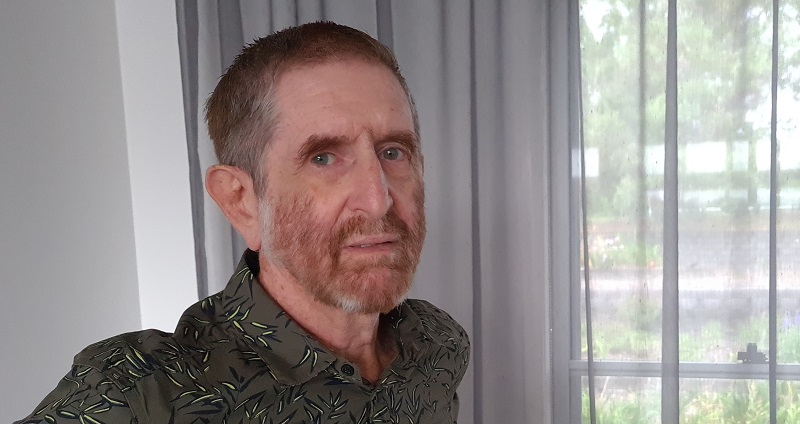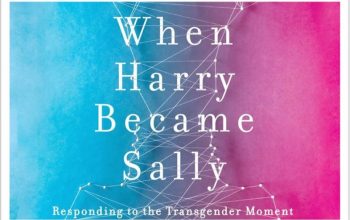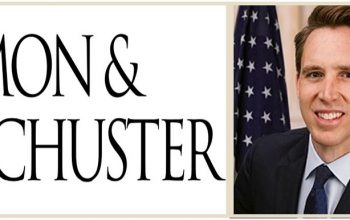Mental health is one of the most important areas of scientific research. While some new research findings in the field of mental health make news almost daily, rarely do we hear about critical reviews of the science on which the structure of psychiatry stands. Australian psychiatrist Niall McLaren, M.D., is one of those few experts in the field of mental health who are concerned with the flaws in the basic models of psychiatry that determine the diagnosis and treatment of psychological problems among millions of patients around the world. In his latest book Anxiety: The Inside Story, Dr. McLaren – who goes by Jock – explains in details why contemporary mainstream psychiatry is incapable to adequately deal with the mental health issues of millions of patients whose core psychological issue is one single powerful emotion: anxiety. Jock has more to say in this regard and he continues to be as honest and outspoken as ever.

Ernest: Jock, congrats on the wonderful book Anxiety: The Inside Story. Since I read Humanizing Madness, years ago, I remember you mentioned anxiety as central to what is considered mental illness. Was writing a book exclusively about anxiety on your mind all along?
Jock: Good morning and thank you for that. The short answer is no, I hadn’t had that particular idea but if you’re working in a field and you think something is central to it, and you believe that everybody just doesn’t get it, then there is always the idea that one day, you’ll have to do something about it. But the stimulus to start writing came from a patient, who’s actually in it (Jeremy V, p256). He had been exposed to mainstream psychiatry for about two years and was fully indoctrinated (his word) in the idea that he had “a chemical imbalance of the brain.” He is highly intelligent but, at first, he struggled to understand the idea that anxiety is not a “disease” but is a normal part of life. Then he saw it and suggested I should write a pamphlet to give to patients so they could understand it in mentalist terms. I knocked out about twenty pages; he read it and said “No, make it a book but write it the way you talk, not as a scientific book.” I started and the book just wrote itself. The real problem was keeping it within length.
Ernest: Would it be correct to call anxiety the seed of mental illness?
Jock: Hmm, that’s a loaded question. I see anxiety is one of the elemental human emotions, and probably the least understood, just because it’s so basic. It is the most powerful of all emotions; it has to be because its job is to save our bacon, meaning to save our genes. Its power to control human behavior comes from the fact that while other emotions build up, then collapse in a heap, anxiety builds up and up until you give in and do what it wants. This comes from the fact that it exists to avoid threats in order to save our lives, but… we can become anxious about the idea of becoming anxious, a recursive or self-reinforcing loop, and that’s how it gets out of control. It is the only recursive human emotion, meaning it can act back on itself. That one point is the basis of all human anxiety problems. My book argues the case for anxiety being absolutely central to the great bulk of mental disorder so, in that sense, it could be seen as the “seed” of mental problems (I don’t use the term “mental illness”).
Ernest: You talk about anxiety as the most communicable of emotions (p 43). Does it imply that what we consider mental illness is also contagious? Or should I say, the seed of mental illness is contagious?
Jock: I avoid medicalizing the concepts, so I use communicable instead of contagious, disorder instead of illness. But anxiety spreads very quickly; that’s what it is; that’s what it does. We have to respond to an alerting signal by becoming anxious and alert even before we know what the danger is. It overrides everything, all emotions, such as anger or humor, pain, hunger, misery, exhaustion, you name it; anxiety always wins. So if a person suddenly becomes agitated, we tend to become agitated too, not in sympathy but out of self-preservation. That’s why there is what used to be called “mass hysteria,” where a group of people all become anxious because the person next to them is anxious.
Ernest: Throughout your book, you explain how anxiety leads to depression and anti-depressants or other psychiatric drugs are not the solution to depression or anxiety. But mainstream psychiatry is heavily reliant on drugs for running their profitable business of treatment. Is psychiatry ignorant or corrupt?
Jock: Yes. OK, I’ll elaborate. First point, mainstream psychiatry doesn’t have a model of mental disorder. They act as though they do, and will throw around terms like “biopsychosocial model,” or “biomedical model,” but these things don’t exist. Psychiatry has an ideology of mental disorder, but it is not a science of mental disorder. Do psychiatrists know this? Somewhere, deep inside, they do, but they are too scared to admit the truth. I regularly issue challenges to psychiatrists to produce their vaunted “models.” None of them ever does, even such prominent names as Ronald Pies, who insists the “biopsychosocial model” is a real thing. I invited him to publish the seminal references to this illusion but, most unusually, he has gone quiet. Is psychiatry therefore corrupt? Yes, deeply, and not just financially, although that is a real issue, but intellectually and, I have to say, morally corrupt. It is wrong to tell people “You have a genetically-determined chemical imbalance of the brain” when such things a) don’t exist, and b) couldn’t exist. Psychiatrists are both ignorant and corrupt. Society will wake up to this one day and then the trouble will start.
Ernest: I find it extremely important that you discuss how crime and drugs are mainly distractions that people with severe anxiety turn to when their anxiety issue is not resolved. Doesn’t that imply a huge change for modern societies to realize that addressing anxiety can be the game changer?
Jock: That’s exactly what it implies. In one word, a revolution. Sure, there are moral elements in drugs and crime but underneath so much of it is a festering anxiety problem which the subject doesn’t understand and doesn’t admit. But then society isn’t blameless either as it casts these matters in moral terms, but it also doesn’t have effective forms of management. Why does the US have an opioid “epidemic”? Because so many people are seriously anxious with no access to services, and some more than normally venal drug companies realised they could capitalize on this. Opiates are essentially very powerful but highly addictive tranquillisers. Early recognition of anxiety in children or teenagers, coupled with effective, non-chemical forms of intervention, will save the society a thousand times more than it costs. Not to mention the improvement in the individual’s life.
Ernest: You reject the biological model of mental illness that psychiatry has been adhering to for many decades. Have you found other psychiatrists or scientists that agree with you and want psychiatry to get on the right track?
Jock: The crucial point is that there is no biological “model” of mental disorder. It doesn’t exist, it has never been written, nobody has ever seen a copy of it, nobody has a copy on his bookshelf, medical students are never shown it… Sondern trägt der Kaiser keine Kleider. The emperor is wearing no clothes. It is a gigantic fraud, one of the biggest and most destructive in human history. If any psychiatrist reads this and can produce an explanatory biological model of mental disorder, then I would love to be proven wrong. But it’s not going to happen. Challenged to produce their “model,” they all go to water. Who agrees with me? A few, but rarely in public. Their fear of being booted out of the guild, of standing alone, is overwhelming – and that omnipresent emotion, anxiety, lifts its head again.
Ernest: As a general rule, if a person of knowledge and experience questions the establishment science today, he/she is suppressed, even threatened. Tell us what it’s been like for you since you questioned the flawed science of the mainstream psychiatry?
Jock: Not good. I’ve been threatened quite a bit, I’ve been jostled and had people snatch the microphone out of my hands, but mainly psychiatrists operate behind closed doors. For example, some years ago, I put a submission to the Australian Human Rights Commission in their enquiry into the Optional Protocol on Torture as it related to detained persons. The HRC is an important body, and the Convention on Torture is a major international treaty. I pointed out that involuntary psychiatric patients are detained persons under the Treaty, that they are subjected to “treatment” without consent, and many of them regard their experience as torture. Therefore, all detained psychiatric patients in this country would be able to appeal to the UN for relief, as international treaties override national and state law. Somebody lodged a complaint with the Medical Board, making a number of factually wrong allegations which weren’t in my submission anyway. That caused me weeks and weeks of work, and cost a small fortune in legal fees. That’s typical: Don’t look at the critique, shoot the messenger.
Ernest: Until I read Anxiety: The Inside Story, I had no idea that Queensland law allows forced treatment of people labelled as psychotic. I thought that was the medieval approach to mental illness. Is the law better in other parts of Australia when it comes to treating those deemed psychotic?
Jock: Really? You must live on a lovely planet. On this one, every country has a mental health act which allows/encourages the detention and enforced drugging of anybody who seems a bit off in the head. Once a person gets into the system, he won’t get out. People can even be detained if their behavior indicates they may somehow “damage their reputation.” Truly. But the catch is that, thus caught, injected and subdued, if they ever object, that’s a sign that their “chemical imbalance of the brain” is getting out of control and they need more, not less, treatment. If the drugs don’t work, they’ll get ECT. And don’t say you thought that had gone out with periwigs; it’s still widely used, especially in private psychiatric hospitals. It’s a winner, involuntary ECT – you can make a fortune out of it. I never used ECT. If I can practice without it, so can all the terribly clever city psychiatrists in their glass towers and luxury hospitals. But if they didn’t use it, they wouldn’t have glass towers and luxury hospitals, would they? BTW, if you get psychiatric drugs in the long term, even for the risk of “reputational damage,” you will die younger than people who never got them, regardless of the diagnosis. It’s a drug effect alone.
Ernest: How credible is the DSM, the widely publicized “bible of psychiatry” as they call it, when you look at it as a scientist?
Jock: It’s not credible at all, even Thomas Insel said so when he was director of NIHM. My epistemological critique from 2007 has never been answered, because it can’t be answered. But more important, science doesn’t have bibles; only religions have sacred texts, which can’t be criticized. But as I said, psychiatry is more ideology than science; it has all the trappings of a money-making cult, so it’s not an unfair criticism.
Ernest: When you look at the research published in science journals today, particularly in the field of psychiatry, do you see many, if any, studies that second your model of mental illness?
Jock: Richard Smith, former editor of the BMJ, said “Medical journals are an extension of the marketing arm of pharmaceutical companies.” That’s pretty blunt, but unimpeachable. I share the view that medical journals in general, and psychiatric journals in particular, are no more than part of a corrupt and corrupting industry. Something like 80% of published psychiatric papers vanish without a trace, and if we strip out people quoting their own papers, the citation rate plummets. But it is exceedingly difficult to get critical material published. Editorial boards are not composed of critics of the mainstream; they are a chorus of yay-sayers, an echo chamber that amplifies group thinking but does not question it. Critics won’t be invited to join the party but if one managed to get a seat, he wouldn’t last long. And it’s getting worse. Intellectually, psychiatry is a house of cards. If you try to remove one card to rewrite it, the whole thing comes tumbling down. I see psychiatrists slowly becoming aware that they are well and truly in the feces, but they don’t know what to do about it. They would have to question themselves, and they have no stomach for that.
Ernest: I do want to ask for your word on mainstream media, both print and electronic. How helpful are they in creating awareness on real issues in medical problems and mental health?
Jock: MSM? OMG, where do we start? They too are in the grip of the drug-academic-guild axis of psychiatry. They lap up the regular press releases of the usual go-to psychiatrists, but they never touch serious criticism. You will never find a word of dissent, only the endlessly repeated mantra “Psychiatry is on the cusp of a major breakthrough in the diagnosis and treatment of X” (where X is whatever faux disease an aspiring academic has managed to extract from the entrails of DSM in order to carve out a career for him or herself). Where drug companies can advertise direct to the public, it’s worse. Can you imagine any of the Murdoch megaphones giving an honest account of problems within psychiatry? Nor can I. Even in countries like Australia and Britain, where we have public broadcasters, it’s impossible to get a critical word in. A reporter who challenged the standard view once told me she would never do it again; she was threatened with dismissal. Why? Why do public broadcasters care to take a stance? Because the drug companies and the medical lobbies immediately get on the phone to the minister of health and jam a rocket up his arse. That’s why.
Ernest: Lastly, I would like to know how you as a psychiatrist and dealing with the communicable issue of anxiety in patients safeguard your own mental health against anxiety.
Jock: First step is to know exactly what you’re dealing with, which means allowing the patient the room to talk about their fears while taking a detailed history. This is very important in men who, of course, don’t have fears, do we? Knowing that the real problem is a deep-seated fear state and that the aggression or suspicion is just window-dressing means you can slip under the aggression to talk directly to their fears. The second thing is not to fool yourself into believing that good intentions necessarily produce good outcomes, meaning that if something goes wrong, it must be the patient’s fault. In modern psychiatry, all pathology is located in the nominated patient, not in his family, not in his society, and certainly not in psychiatrists. Finally, don’t be phony. Patients can see through that in a split second and they don’t like it. If a patient wants to shout that his last shrink was a dickhead, who was trying to crush him, there’s an element of truth in it somewhere. It’s a matter of finding it. And, of course, there are people who are beyond reach. Knowing that, and not being burdened by the need to “cure” them at all costs, makes life a lot simpler.
Ernest: Jock, thank you so much for your time and sharing your insight.
See more of Dr. McLaren’s work at http://www.futurepsychiatry.com/.



Excellent, thanks. I can’t help feeling uncomfortable with Dr McLaren’s remark about some people being ‘beyond help.’ Foolish as it may be, I just can’t accept that.
Well his exact phrasing is “beyond reach” – and if you read his book, he explains the kinds and levels of psychological defenses people put up (and not always consciously) to resist a therapist’s attempt of finding the cause of their problem. So I can see in that context his comment makes sense. The thing is you can’t force a patient if he/she becomes resistant to their last nerve to let you probe their issue.